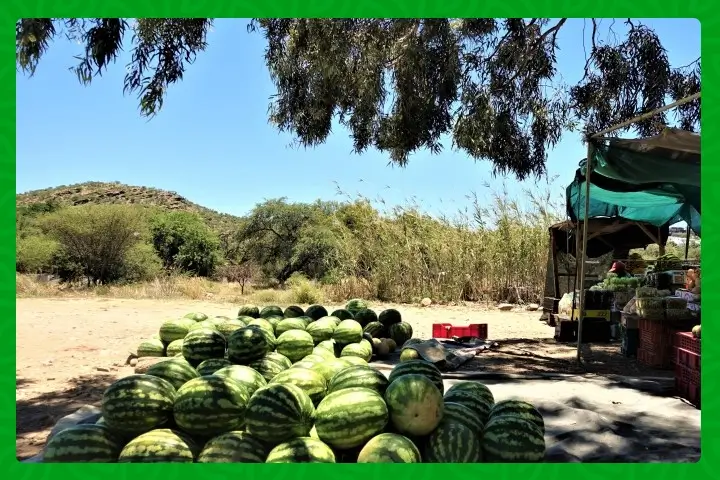
In the vibrant world of watermelon trading, the harvest season unfolds as a lucrative opportunity for countless farmers to spread the joy of juicy, refreshing watermelons across the nation, turning their hard work into a source of income. However, beneath the surface of this seemingly abundant market, a fierce competition is taking place, pitting small-scale farmers and street vendors against the giants of the retail industry. In this article, we delve into the challenges faced by these unsung heroes of horticulture as they strive to find a place in the formal market.
Struggles of the Street Vendor:
An anonymous vendor specializing in horticultural products recently shared her journey with The Villager, shedding light on the uphill battle faced by fresh produce traders. One of the major hurdles is the lack of proper storage, leading to the spoilage of precious watermelons. The delicate dance of pricing poses another challenge, where any reduction could jeopardize profitability. Additionally, customer preferences for chilled watermelons from large retail stores create further complexities, making it hard for street vendors to compete on an equal footing.
Market Dynamics:
While staples like tomatoes, onions, and potatoes continue to dominate the market, the vendor’s recount of being chased away from a retail store for selling fruits alongside other products exposes the difficulties faced by street vendors in diversifying their offerings. Despite a bustling December, economic strains in January have led to a decline in customer traffic. This underscores the pivotal role played by fruit and fresh produce vendors as crucial distributors, especially in rural areas where access to formal retailers is a challenge.
The Agricultural Board’s Stand:
The Namibia Agronomic Board’s latest horticulture harvest projection reveals a glimmer of hope for local watermelon farmers. The closure of borders for watermelon imports, with specific exclusions, opens up avenues for domestic producers to thrive. This development emphasizes the importance of supporting local farmers and ensuring a sustainable market for their diverse watermelon varieties.
Access to Market Issues:
Beyond watermelons, Namibian tomato farmer Simon Nekandu unveils the struggles faced by local farmers in accessing markets for their produce. Despite a robust seasonal harvest of over one ton of tomatoes, Nekandu encounters challenges in getting Namibian-grown tomatoes onto local market shelves. The extended waiting period for orders, coupled with a lack of a stable market, forces him to predominantly supply the open market, where margins might be lower but demand remains consistent.
Challenges and Solutions:
Pests pose a significant challenge for Nekandu, impacting overall output despite investments in pest control. Limited access to the formal market further hampers the rewards for local farmers. The Retailer Charter, implemented in 2016, strives to transform the Namibian retail sector by promoting local sourcing. While voluntary, the Charter’s commitment to transparent conduct and the removal of barriers in retail spaces aims to stimulate economic growth. However, non-compliance among retailers, government agencies, and catering companies remains a concern, as confirmed by the Ministry of Finance and Public Enterprises.
In the evolving landscape of watermelon and horticultural trading, small-scale farmers and street vendors are navigating a challenging terrain. As they seek entry into formal markets, the support of consumers, retailers, and government initiatives becomes paramount. By understanding and addressing the unique challenges faced by these unsung heroes, we can ensure the sustainability and growth of local agriculture, fostering a thriving market for watermelons and other fresh produce.


















